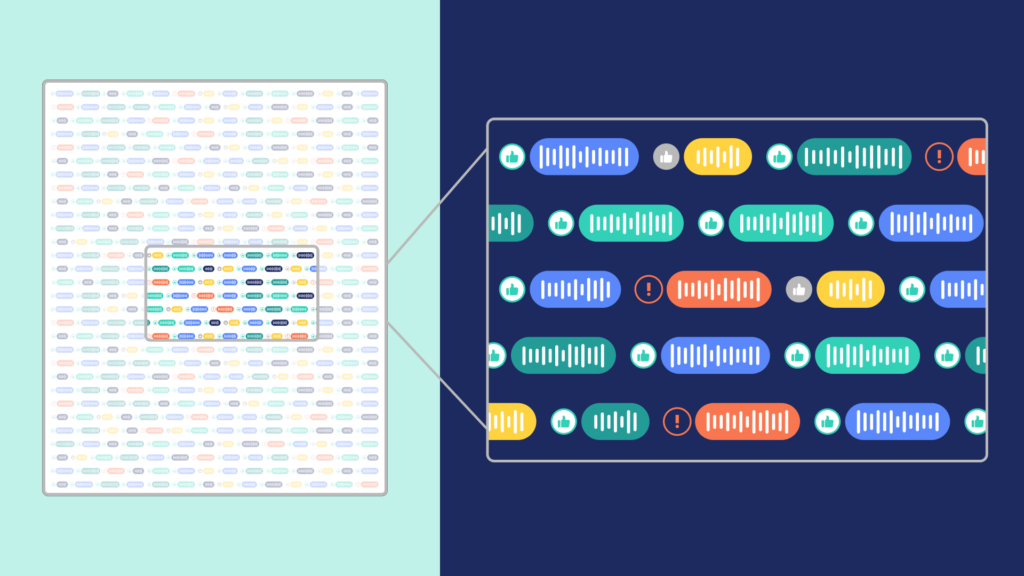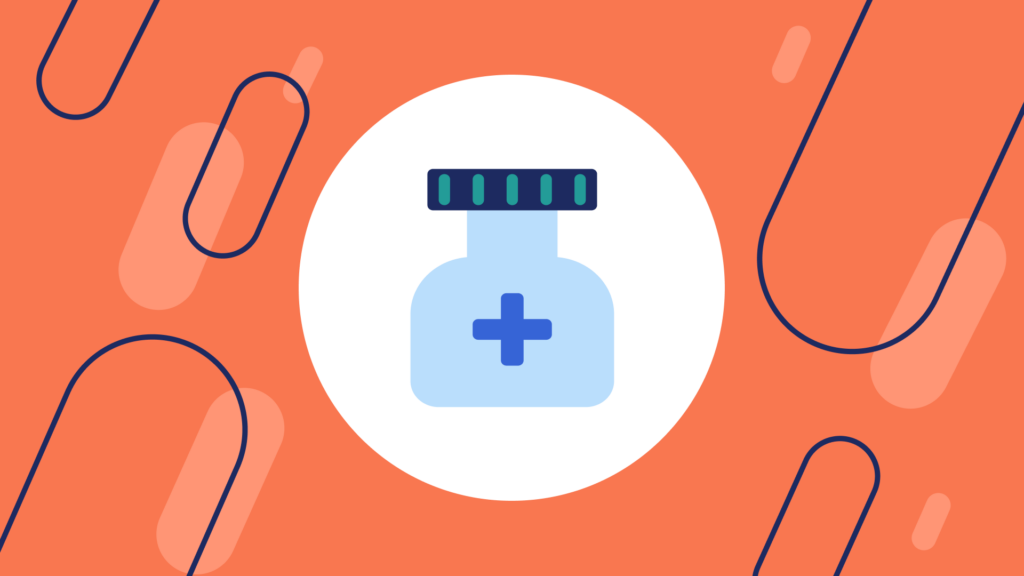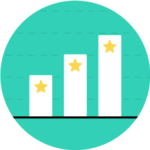
Evaluate and score customer interactions at scale.
Leverage CX insights from automation to audit agent interactions, save time and capacity, and evaluate data with confidence.
See How Authenticx HelpsAggregate topics, themes, and patterns from millions of conversations to drive relevant and impactful insights. Learn how AI listens at scale.
Elevating Adherence with Product and Process Insights
Using Autenticx AI, a life sciences manufacturer’s contact center reevaluated their transfer process, improved adherence communication, and located agent training opportunities.
Read the Customer Story
Automated Data Insights
The healthcare industry is continually evolving and improving thanks to technological advancements in both medical care and the logistics side of things as well. Automated data insights powered by AI data analytics are rapidly revolutionizing the healthcare industry from the ground up. Thanks to the digitization of healthcare records and the proliferation of data sources, healthcare providers must now manage troves of data efficiently and effectively. Extracting meaningful patterns and actionable insights from all this information can pose significant challenges.
AI health has emerged as a transformative solution to help tackle these complexities. Automated data insights leverage AI algorithms to analyze volumes of diverse healthcare data. These insights encompass a wide range of applications that aid healthcare providers by enhancing the quality of patient care, operational efficiency, and improving decision-making processes. Through advanced data analytics, healthcare providers can more quickly identify trends, detect anomalies, and more accurately predict patient outcomes.
Numerous types of healthcare data are amenable to the analysis process. Clinical data – including electronic health records, medical imaging, and genetic information – can be integrated and analyzed to identify risk factors, predict disease progression, and tailor personalized treatment plans. AI technology can also analyze administrative data, such as billing records and claims data, to optimize revenue cycles and streamline workflows, reducing administrative burdens on busy healthcare professionals.
Automated data insights also help with population health management. By analyzing data from numerous diverse sources (including wearable devices and health monitoring platforms) AI health can assist healthcare providers in identifying and addressing health trends at a community or hyper-local level, enabling proactive interventions and effective preventative measures.
These data insights also improve patient safety by spotting potential adverse events and drug interactions. Early detection of such issues can prevent grave medical errors and improve patient outcomes.
Data Analysis in Healthcare
Analytics within the healthcare industry encompasses a number of methodologies to extract valuable insights from the many different types of healthcare data available today. These methodologies may include descriptive, diagnostic, predictive, and prescriptive analyses, each serving its own distinctive purpose in improving patient care and streamlining operations. Automated data healthcare insights like these play a substantial role in supporting better data analysis in the industry.
Here are some of the different types of health data analytics:
- Descriptive Analysis – This process involves summarizing and visualizing healthcare data to gain a comprehensive understanding of past events. It helps healthcare providers review historical patient records, disease prevalence, and treatment effectiveness.
- Diagnostic Analysis – When applying diagnostic algorithms to healthcare data, providers can diagnose diseases, detect risk factors, and determine the primary contributors influencing patient outcomes. Diagnostic analysis in healthcare is leading to faster and more accurate diagnoses.
- Predictive Analysis – This type of analysis employs AI and machine learning algorithms to forecast future events and possible trends in healthcare. By analyzing historical healthcare data, predictive analysis can anticipate disease outbreaks, patient readmissions, and even potential complications.
- Prescriptive Analysis – Healthcare data analytics can also offer prescriptive insights, providing improved recommendations for optimal actions based on existing data. This involves generating treatment plans, suggesting various interventions, and outlining a more personalized care pathway for patients. Real-time updates to treatment recommendations based on new data can ensure that patients receive the best, most current, and most effective care.
Data analysis in healthcare is crucially driving more informed decision-making, improving patient outcomes, and optimizing healthcare operations. These advanced analytics techniques empower healthcare professionals to deliver personalized and evidence-based care, leading to improved patient experiences and cultivating a community of care.
Automated Patient Engagement
Automated data insights have the potential to completely change the way healthcare providers go about patient engagement by leveraging customer data analytics with patient data insights. Through these cutting-edge analytics techniques, healthcare providers can create personalized and proactive approaches to enhance patient interactions and experiences.
With customer data analytics, healthcare providers glean invaluable insights into patients’ preferences, needs, and behaviors. This enables them to tailor communication and outreach efforts to ensure that patients receive relevant information and adequate support. Personalized communication fosters a stronger connection between patients and healthcare providers, leading to improved engagement efforts and greater adherence to treatment plans.
Automated patient engagement platforms can use patient data insights to identify high-risk patients and those who may require additional follow-ups or specific preventative measures. Analyzing patient data – such as medical history, test results, and demographic information – allows the system to automatically trigger reminders for appointments, medication refills, and relevant health screenings. Proactive outreach not only improves patient compliance but also instills a sense of care and support, which helps patients feel cared for and improves the quality of care providers can achieve.
Predictive health monitoring is another critical aspect of automated patient engagement. When leveraging patient data insights and predictive analytics, healthcare providers can anticipate potential health issues before they escalate. Automated patient engagement systems can monitor vital signs, symptoms, and behavioral data from wearable devices and other sources, alerting both patients and healthcare professionals to emerging health concerns. Early interventions based on these insights can prevent complications and reduce hospital readmission rates.
Collecting feedback and patient satisfaction data is essential to help improve patient engagement initiatives. Automated patient engagement platforms can utilize customer experience analytics to gather additional feedback through surveys and health assessments. This real-time data enables healthcare providers to continuously assess patient experiences and make necessary adjustments to provide the highest quality care.
How It Works
Gain a deeper level understanding of contact center conversations with AI solutions.
Learn MoreAggregate
Pull customer interaction data across vendors, products, and services into a single source of truth.
Analyze
Collect quantitative and qualitative information to understand patterns and uncover opportunities.

Activate
Confidently take action with insights that close the gap between your organization and your customers.
Call Center Insights
Data automation is also revolutionizing healthcare call center operations by enhancing their efficiency, responsiveness, and overall performance. By leveraging call center analytics, survey analytics, and AI call center technologies, healthcare organizations can extract key information from troves of customer interactions and call center data.
In call center environments, data automation allows for the recording, storing, and analysis of customer calls and inquiries. By automatically transcribing and categorizing every call, healthcare call centers can quickly identify prevalent issues, track call trends, and determine areas that require improvement. These insights help call center managers allocate resources more efficiently and provide more specialized training to agents.
Survey analytics is another important part of data automation in healthcare call centers. When organizations automate the distribution and analysis of customer surveys, call centers can gather even more feedback and satisfaction data. Survey analytics provide a greater understanding of customer preferences, pain points, and expectations, leading to better service delivery and improved patient experiences. Automated survey analysis also allows call centers to promptly address negative feedback by proactively engaging with dissatisfied customers.
AI call center technologies have been instrumental in transforming call center operations. Implementing AI-powered chatbots and virtual assistance has given healthcare organizations the ability to automate routine inquiries, appointment scheduling, and address other general information requests. These AI-driven systems provide quick responses to customers while simultaneously freeing up call center agents to handle more complex and pressing concerns.
Additionally, data automation in healthcare call centers facilitates seamless integration of data from various sources (like EHRs and customer relationship management platforms). This integrated approach provides a holistic view of patients’ interactions within the healthcare organization, enabling call center agents to provide stellar, data-informed support.
Customer Insight Software
For healthcare providers seeking to automate data insights to access valuable knowledge about patients and improve the quality of care and services provided, customer insight software is one of the most powerful tools available today. This software facilitates the collection, processing, and analysis of data, enabling healthcare providers to make informed decisions and implement data-driven strategies.
Healthcare providers are dealing with scores of data from numerous different sources, including EHRs, medical devices, patient surveys, and administrative systems. Customer insight software streamlines this extensive data collection process, increasing efficiency and accuracy simultaneously. This automation substantially reduces the manual workload and potential for human errors, ensuring that the data collected is reliable and up-to-date.
Healthcare data analytics software also grants access to advanced analytical tools used to process data collection in healthcare. These tools enable healthcare providers to process and analyze complex medical data with the greatest of ease, revealing obscure patterns and trends that might not be readily apparent when analyzed via traditional methods. By automating data insights, healthcare providers unlock a more comprehensive understanding of patient populations, identify high-risk patients, and personalize treatment plans based on data-driven predictions.
These automated data insights also contribute to broadly improving the patient experience. With customer insight software, healthcare providers can monitor patient satisfaction and feedback in real time through surveys and other modern feedback mechanisms. Analyzing this feedback helps identify areas that could be improved and ensure that patient concerns are addressed promptly, which leads to higher patient satisfaction and increased patient loyalty.
Furthermore, automated data insights give healthcare providers the tools to track and optimize their operational processes. Analyzing data related to appointment scheduling, wait times, and resource allocation can lead to the identification of bottlenecks and inefficiencies. Organizations can then implement changes to streamline workflows and improve the quality of service across the board.
In the context of healthcare where timely decision-making can be the difference between life or death, customer insight software enables healthcare providers to act quickly and proactively. Analyzing data in real time helps detect potential health issues early on, allowing for more timely interventions and more effective preventative measures. This can lead to better patient outcomes, reduced hospital readmissions, and overall lower healthcare expenses.